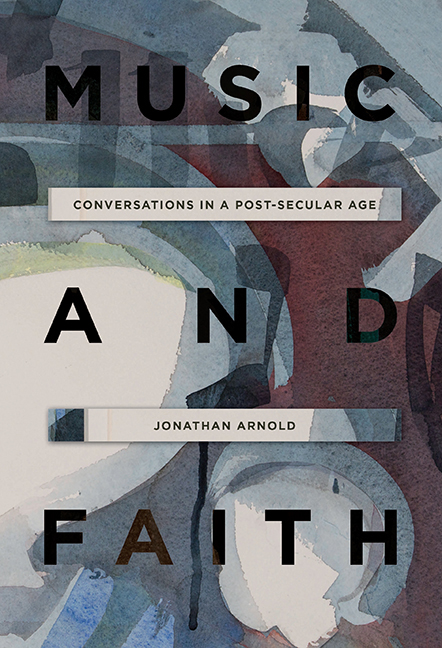Book contents
- Frontmatter
- Dedication
- Contents
- List of Illustrations
- List of Interviewees
- Preface
- Acknowledgements
- Introduction: Faith, Belief and Post-Secularism
- I MEDIEVALISM TO POST-SECULARISM
- II THE HUMAN MIND AND SOCIETY
- 4 Singing in Synchrony: Music, Bonding and Human Evolution
- 5 ‘Fear of the Mystery’: Music, Faith and the Brain
- 6 Music and Faith under Persecution
- Interlude II. An Echo of the Spheres in the Shires: The Enduring Appeal of Sacred Music at the Three Choirs Festival
- III BELIEF AND UNBELIEF
- Conclusion
- Notes
- Bibliography
- Index
Interlude II. An Echo of the Spheres in the Shires: The Enduring Appeal of Sacred Music at the Three Choirs Festival
from II - THE HUMAN MIND AND SOCIETY
Published online by Cambridge University Press: 01 September 2019
- Frontmatter
- Dedication
- Contents
- List of Illustrations
- List of Interviewees
- Preface
- Acknowledgements
- Introduction: Faith, Belief and Post-Secularism
- I MEDIEVALISM TO POST-SECULARISM
- II THE HUMAN MIND AND SOCIETY
- 4 Singing in Synchrony: Music, Bonding and Human Evolution
- 5 ‘Fear of the Mystery’: Music, Faith and the Brain
- 6 Music and Faith under Persecution
- Interlude II. An Echo of the Spheres in the Shires: The Enduring Appeal of Sacred Music at the Three Choirs Festival
- III BELIEF AND UNBELIEF
- Conclusion
- Notes
- Bibliography
- Index
Summary
You cannot be schooled in Hereford, as I was, and not be aware of the Three Choirs Festival, the 300 year-old tradition that brings together the cathedral choirs of Hereford, Gloucester and Worcester, the Festival Chorus and worldclass orchestras, as well as recitalists and fringe events for a week of musical and liturgical festivity. But my first proper introduction to the Festival came when I joined Hereford Cathedral Choir as a ‘supernumerary lay clerk’ (choral scholar) in my gap year. It was a testing year for the lay clerks as they were forced, patiently or otherwise, to endure my ignorance and mistakes as I learned the Anglican cathedral repertoire. For the Gloucester Festival of 1989 my accommodation was basic – a tent in a field – but the music-making, liturgical or otherwise, was grand and inspiring. The Hereford contingent of the chorus had spent many an evening rehearsing under the direction of the exacting Dr Roy Massey, whose memorable quips to errant singers I have never forgotten: ‘He who never made a mistake, never made anything’ or simply: ‘Sort yourself out!’ Thus, like many a singer before me, the Three Choirs Festival became an inspirational part of my musical education and I was delighted to return, years later, as a soloist. In my youth I was entranced by music and the atmosphere, but largely unaware of the rich and long history of the Festival, nor indeed how influential it has been upon the British and worldwide musical landscape, and how it has not only championed English choral music, from Purcell and Handel to Elgar, Parry, Vaughan Williams, Howells and Finzi, but has also been an enormously significant promoter of new music throughout its history. Through commissions and brave programming, the festival has been increasingly at the heart of advances in contemporary choral and orchestral music. Many established composers today cut their teeth composing for the Festival.
Daniel Lysons's early nineteenth-century history, republished by Gloucester Cathedral Organist John Amott in 1865, along with more recent accounts by Watkins Shaw (1954), Anthony Boden (1992) and Barbara Young (2000), attests that the medieval choral foundations had long been connected. For instance, Thomas Tomkins (1572–1656), ‘master composer’, was Organist at Worcester (c. 1596), having been a boy chorister at Gloucester, where his father had been precentor.
- Type
- Chapter
- Information
- Music and FaithConversations in a Post-Secular Age, pp. 157 - 162Publisher: Boydell & BrewerPrint publication year: 2019



